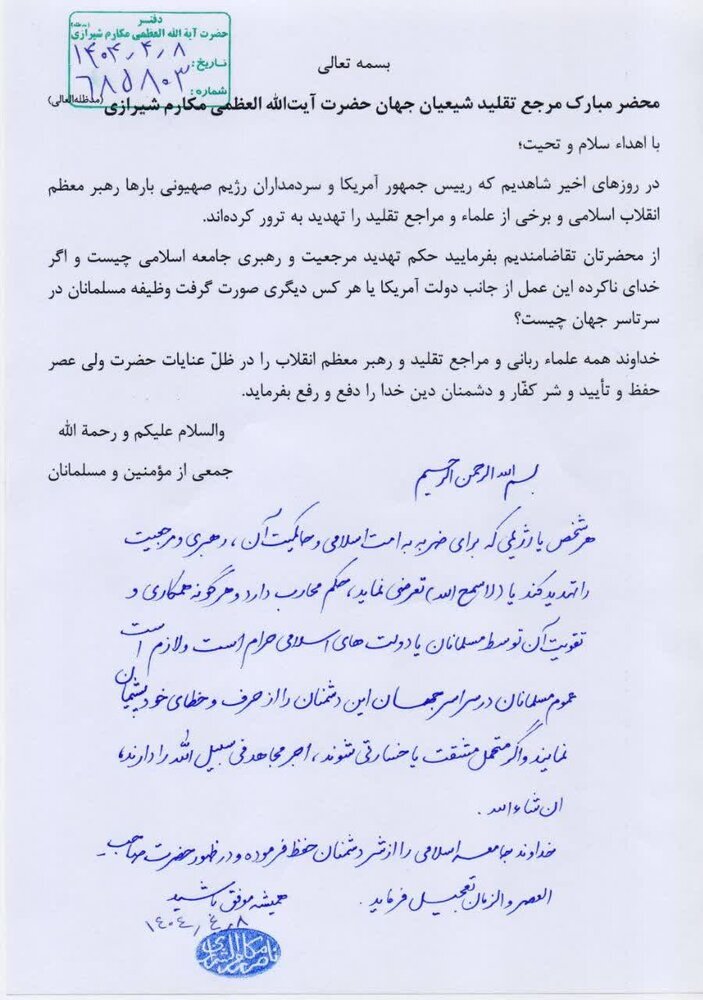Religious outcry grows as West escalates rhetoric against Ayatollah Khamenei

TEHRAN – In response to escalating threats from U.S. President Donald Trump and senior Israeli officials against the Leader of the Islamic Revolution, Grand Ayatollah Seyyed Ali Akbar Hosseini Haeri, a senior Marja and prominent religious authority based in Najaf, issued a Fatwa declaring that any assault on Ayatollah Seyyed Ali Khamenei would be regarded as an attack on the entire Islamic world and met with severe consequences.
“Any harm directed at the Leader is tantamount to an attack on the entire Islamic Ummah,” Ayatollah Hosseini Haeri declared in his statement.
Denouncing “the intensification of U.S. aggression” and the “barbaric violations of Iran’s sovereignty,” he said these actions represent not only clear breaches of international law but also a declaration of war against Islamic and human values.
“These assaults are not merely an affront to the dignity of Muslim nations,” he said. “They are a direct war on Islam itself.”
Ayatollah Hosseini Haeri stressed that Iran’s Leader, Ayatollah Khamenei, is not only a political figure but also a spiritual symbol of resistance, unity, and global Islamic leadership. Any aggression toward him, he warned, would provoke a decisive response from the broader Muslim world.
“We caution the U.S. and the Zionist regime: the consequences of this reckless path of hostility will be severe. The Muslim Ummah will never permit desecration of its religious leadership.”
On Sunday, senior Iranian religious authorities, including Ayatollah Naser Makarem Shirazi and Ayatollah Nouri Hamedani, have issued firm statements condemning threats against Iran’s Leader as not only immoral but religiously punishable.
In response to a question about Trump’s recent rhetoric, Ayatollah Makarem Shirazi issued what is called a Fatwa, stating: “Any person or government that harms the leaders of the Islamic world is to be classified as a Muharib.”
Under Shia jurisprudence, a Muharib (literally “one who wages war”) is someone who instigates violent rebellion, terrorism, or social chaos. The traditional punishment for a Muharib is death.
The position was echoed by Ayatollah Nouri Hamedani, while Iraq’s Grand Ayatollah Ali Sistani has likewise issued religious rulings supporting the sanctity of Islamic leadership.
Ayatollah Alireza Arafi, director of Iran’s seminary network, also praised the positions taken by the Maraji (plural of Marja) and welcomed their firm stance.
Ayatollah Tabasi, a senior member of the Society of Seminary Teachers of Qom, expressed strong approval of the Fatwas issued by Ayatollah Makarem Shirazi and Ayatollah Nouri Hamedani, praising them as essential in defending the “lofty station of the Leader and the institution of religious authority.”
Leave a Comment